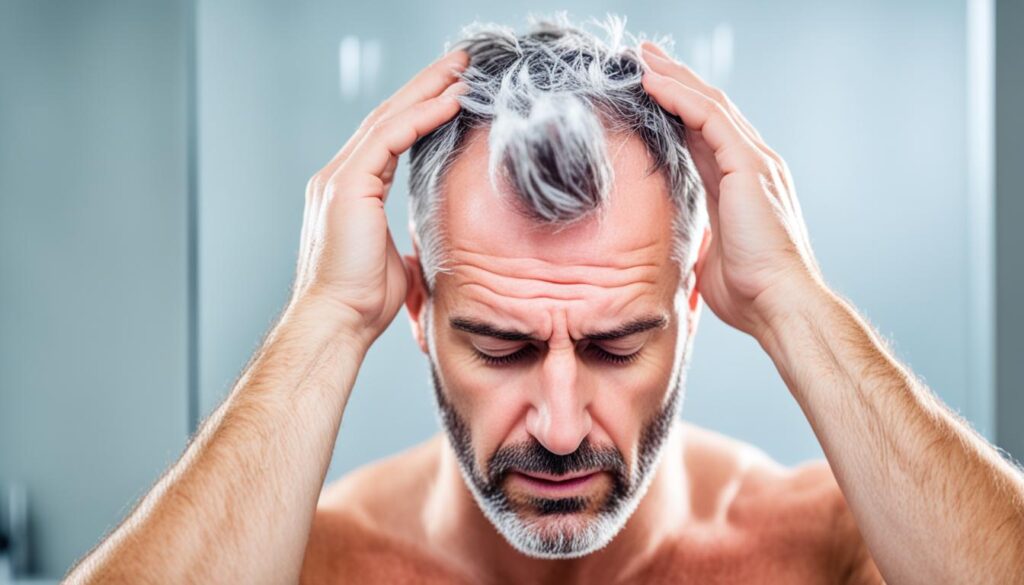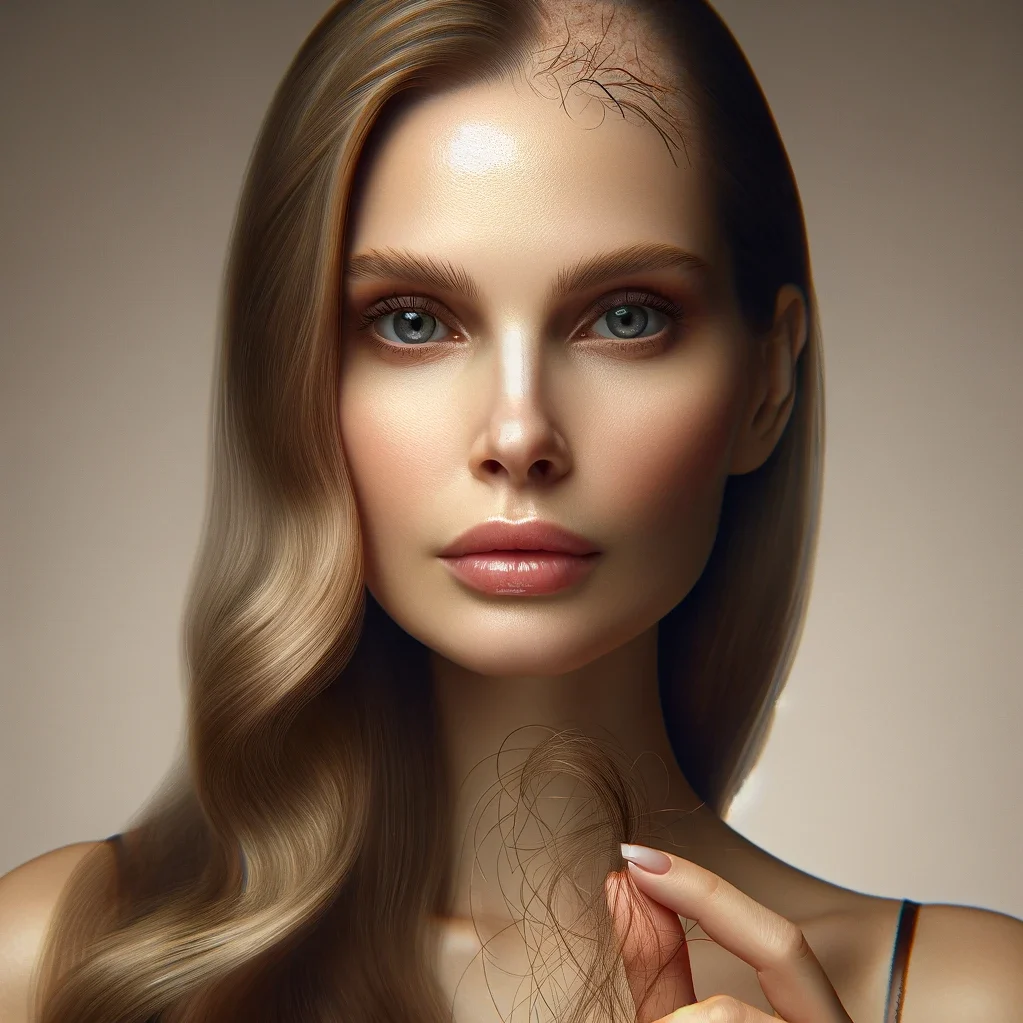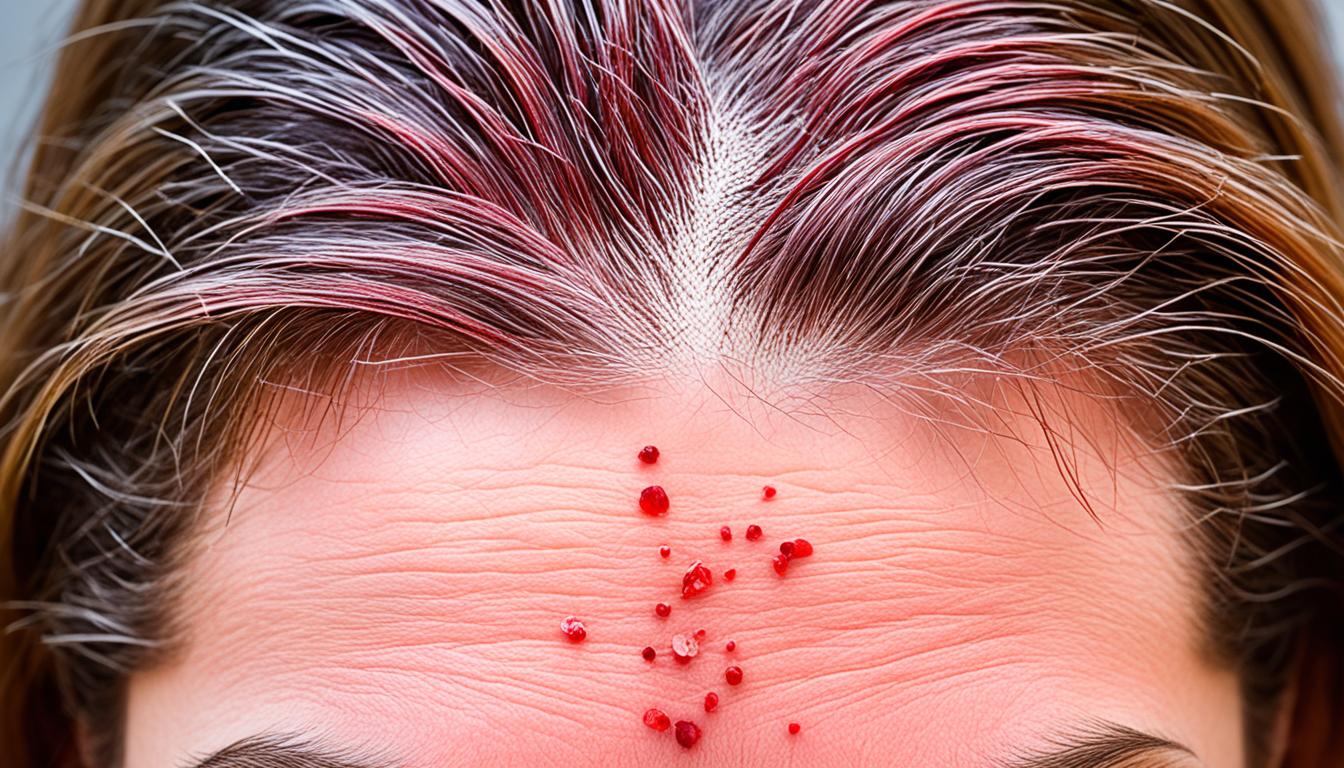Many people experience the frustrating combination of an itchy scalp and hair loss. These two issues are often interconnected, with scalp irritation leading to hair thinning. Scalp pruritus, or an itchy scalp, can be caused by various factors such as fungal infections, allergic reactions to hair products, and inflamed hair follicles. When left untreated, these conditions can result in both scalp itching and hair loss.
It’s essential to address the root cause of scalp itching to prevent further hair thinning. Scratching an itchy scalp vigorously can damage the skin and hair follicles, causing temporary hair loss. However, conditions like hereditary hair loss or male and female pattern hair loss can lead to hair thinning without scalp itching. Itching due to scar tissue on the scalp can also contribute to hair loss. Therefore, it is crucial to identify the underlying cause of scalp itching and seek appropriate treatment.
By understanding the causes and treatments for itchy scalp and hair loss, you can soothe the itchiness and promote a healthier scalp. This article will explore common causes of scalp itching and hair loss and provide insights into effective treatments.
Key Takeaways:
- Scalp itching and hair loss are often related, with various factors contributing to both issues.
- Scratching an itchy scalp vigorously can damage the skin and hair follicles, resulting in temporary hair loss.
- Conditions like hereditary hair loss and male and female pattern hair loss can cause hair thinning without scalp itching.
- Treating the underlying cause of scalp itching is crucial to prevent further hair thinning.
- Consulting a healthcare professional can provide a comprehensive evaluation and personalized treatment plan for addressing scalp itching and hair loss.
Common Causes of Itchy Scalp and Hair Loss
Several scalp conditions can contribute to both an itchy scalp and hair loss. Understanding these conditions and their treatment options can help alleviate discomfort and promote healthier hair growth.
Scalp Ringworm
One common cause of itchy scalp and hair loss is scalp ringworm, a fungal infection. This condition can weaken hair follicles, leading to hair loss. Scalp ringworm is highly contagious and can be transmitted through direct contact with an infected person or pet. Prompt treatment with antifungal medications is crucial for resolving the infection and preventing further hair loss.
Allergic Reactions to Hair Products
Many individuals experience allergic reactions to certain hair products, such as shampoos, conditioners, or styling products. These reactions can irritate the scalp and hair follicles, causing itching and potentially leading to hair loss. Identifying and eliminating the allergen from the hair care routine can help alleviate scalp itching and restore hair health.
Folliculitis
Folliculitis is a condition characterized by inflammation of the hair follicles. It can be caused by bacterial or fungal infections, leading to scalp itching and temporary hair loss. Maintaining proper scalp hygiene, avoiding excessive sweating or heat, and using medicated shampoos or topical treatments can help manage folliculitis and prevent associated hair loss.
Lichen Planopilaris
Lichen planopilaris is an inflammatory scalp condition that can cause both scalp inflammation and hair loss. Itchy scalp, redness, and scaling are common symptoms of lichen planopilaris. This condition requires medical management, including the use of corticosteroids or other prescribed medications, to reduce inflammation and slow down hair loss.
Other Scalp Conditions
In addition to the above conditions, several other scalp conditions can contribute to scalp itching and potential hair loss. These include:
- Dandruff: A common condition characterized by flaky, itchy scalp due to excessive shedding of dead skin cells.
- Dry Scalp: Lack of moisture in the scalp can cause itching and flaking, leading to hair loss if left untreated.
- Psoriasis: An autoimmune condition that causes rapid skin cell turnover, resulting in thick, scaly patches on the scalp and intense itching.
- Atopic Dermatitis: Also known as eczema, it can cause red, inflamed, and itchy patches on the scalp.
Proper diagnosis by a healthcare professional is essential to determine the exact scalp condition and develop an appropriate treatment plan.
Treatment for Itchy Scalp and Hair Loss
Treating an itchy scalp and hair loss depends on the underlying cause. There are various options available to alleviate scalp itching and promote hair growth. Here are some effective treatments:
Medicated Shampoos:
Medicated shampoos containing ingredients like zinc pyrithione are often recommended to alleviate scalp itching and dandruff. These shampoos help control the production of excess oil that can contribute to scalp irritation. Zinc pyrithione has antifungal properties that can also treat fungal infections that cause an itchy scalp.
Anti-Dandruff Shampoos:
Anti-dandruff shampoos containing ketoconazole are effective in treating fungal infections that cause scalp itching. Ketoconazole acts as an antifungal agent, eliminating the fungi responsible for the itchiness and promoting a healthier scalp.
Scalp Treatments:
Scalp ointments or solutions containing natural ingredients like tea tree oil can provide relief for scalp itching. Tea tree oil has anti-inflammatory and antifungal properties, making it effective in soothing irritated scalps.
Aromatherapy with Essential Oils:
Essential oils like rosemary and peppermint can also be used to alleviate scalp itching. These oils have a cooling effect on the scalp, reducing inflammation and providing a soothing sensation. They can be mixed with carrier oils such as jojoba or coconut oil and gently massaged into the scalp.
Healthy Hair and Scalp Care:
Maintaining a healthy scalp is crucial for preventing or minimizing scalp itching and hair loss. This includes gentle hair care practices such as avoiding excessive heat styling and using mild shampoos and conditioners. Regularly washing the hair and scalp, but not excessively, can help remove any buildup and maintain a clean and healthy scalp.
In addition, consuming a nutrient-rich diet that includes vitamins and minerals essential for hair growth, such as biotin, iron, and zinc, can support healthy hair and scalp.
Remember, it is essential to consult a healthcare professional to determine the underlying cause of scalp itching and hair loss. They can provide a precise diagnosis and recommend an appropriate treatment plan tailored to your specific needs.

Conclusion
An itchy scalp and hair loss can be distressing, impacting both our confidence and overall well-being. However, understanding the potential causes of these issues and taking proactive measures can help alleviate symptoms and prevent further hair thinning.
There are various factors that can contribute to scalp itching and hair loss, including fungal infections, allergic reactions to hair products, and scalp inflammation. By addressing the underlying cause, we can effectively soothe the itchiness and promote a healthier scalp.
Targeted treatments such as medicated shampoos or scalp ointments can provide relief for itchy scalp while also nourishing the hair follicles. It is also essential to adopt proper hair care practices, such as gentle handling and avoiding harsh products, to maintain scalp health and minimize hair thinning.
While home remedies and over-the-counter products can offer some relief, it is always advisable to consult with a healthcare professional for a comprehensive evaluation and personalized treatment plan. They can provide expert guidance and recommend suitable interventions that align with your specific needs and goals.
FAQ
Can an itchy scalp cause hair loss?
Yes, an itchy scalp can potentially lead to hair loss. Conditions such as fungal infections, allergic reactions to hair products, and inflamed hair follicles can cause both scalp itching and hair loss.
What are some common causes of itchy scalp and hair loss?
Common causes of scalp itching and hair loss include scalp conditions like dandruff, scalp ringworm (fungal infection), folliculitis (inflammation of the hair follicles), and lichen planopilaris (inflammatory scalp condition).
How can I treat an itchy scalp and hair loss?
Treatment for an itchy scalp and hair loss depends on the underlying cause. Medicated shampoos containing ingredients like zinc pyrithione or ketoconazole can help alleviate symptoms. Scalp ointments or tea tree oil treatments may also provide relief. Additionally, maintaining a healthy scalp through proper hair and scalp care practices is essential.

